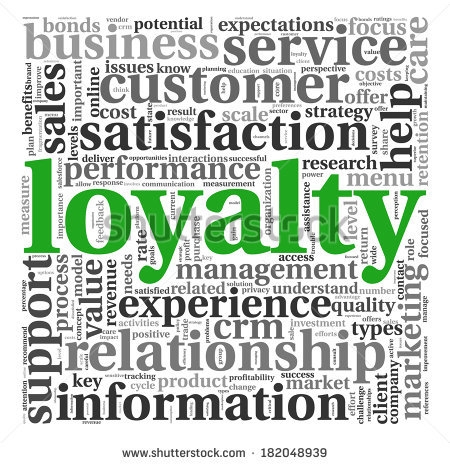Nothing Comes Of Nothing — The New Loyalty Reality
Nothing Comes Of Nothing — The New Loyalty Reality
by Sean Hargrave , Staff Writer, July 3, 2017
We’re living in the age of instant online gratification where many people realise that if they’re not paying for something, their data is. A site gets to know more about us, so they can refine advertising, and in return we get to read the news or watch videos of surfing kittens.

Some offers are so convincing that they mean, for example, people rarely think about the value exchange of data for social media updates or better professional contacts. The tougher part comes when brands plying their trade online want to know more about us.
The harsh reality for such brands is that nearly three in four Britons, at 71%, recently revealed in a survey from loyalty firm ICLP that they don’t see any point in handing over data such as their email address, because there’s nothing in it for them. The other worrisome statistic is that nearly half don’t trust brands to store their data responsibly.
Now, on the subject of loyalty, this should probably be a wake-up call to a lot of brands that there is not a lot of loyalty out there right now. People are more than happy to search on Google or Amazon for a new product. The real takeaway here is probably that consumers can’t afford your type of loyalty. Why would they feel tied to a particular brand or store when a general online search might reveal a better deal?
Another takeaway is that many brands obviously don’t know the value of a new customer, or at least one who is taking a loyalty commitment by signing up to a shopper club or newsletter. If you have a figure of how more likely a signed-up subscriber is to purchase again in the future, how much bigger their cart might be at the end of each checkout, you would have an idea what you can offer to encourage them to submit their data. It needn’t be too extravagant — maybe just free shipping on the first order, a voucher code for a discount further down the line or a free upgrade with a particular purchase.
So there is one side where consumers are saying they don’t get anything for giving away their email and postal address — possibly even a telephone number and even credit card details, as well as their demographic details. There is also a more subtle issue here. If nearly half of Brits don’t trust brands with their data, they must, by definition, associate giving out their details as involving a risk. That risk is clearly the data falling in to the wrong hands, as has been the case with the likes of huge brand names, such as Talk Talk, Yahoo and Sony.
Put these two together and you do indeed come up against the upcoming GDPR law that will increase fines for companies that don’t get freely given consent to each use of a customer’s personal data, but also for not handling that data responsibly.
Yet the real issue here is twofold. Consumers know their data is valuable to a company. They also believe there is a risk in giving it out — not just in the shape of a bombarded inbox, but also opening themselves up to a hack attack.
Hence we come back full circle, and have the reason why nearly three in four are unwilling to give up any personal information unless there’s something in it for them.
Any brands seeking new sign-ups with just a promise that more marketing literature will follow should think long and hard about this. If people are going to take the risk of giving you personal information, and they are very much aware there is a risk and that their data is of value, isn’t it about time you reciprocated?
MediaPost.com: Search Marketing Daily
(24)






